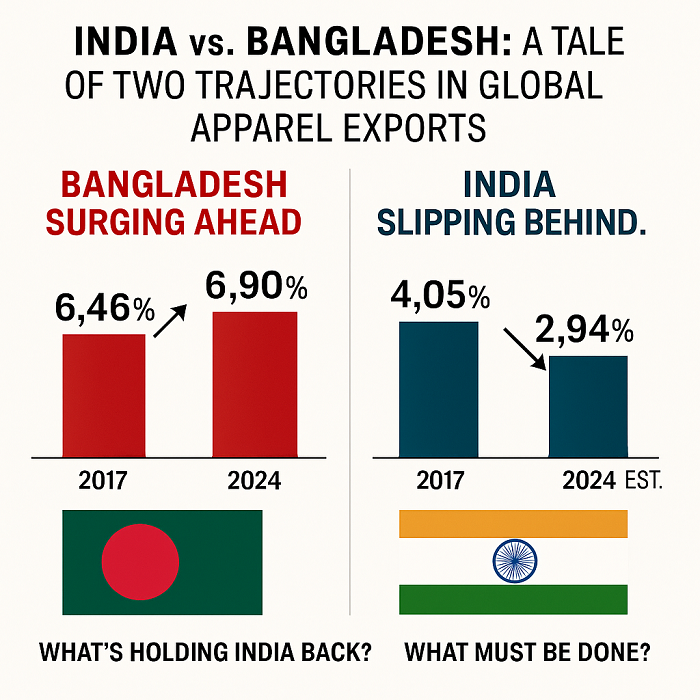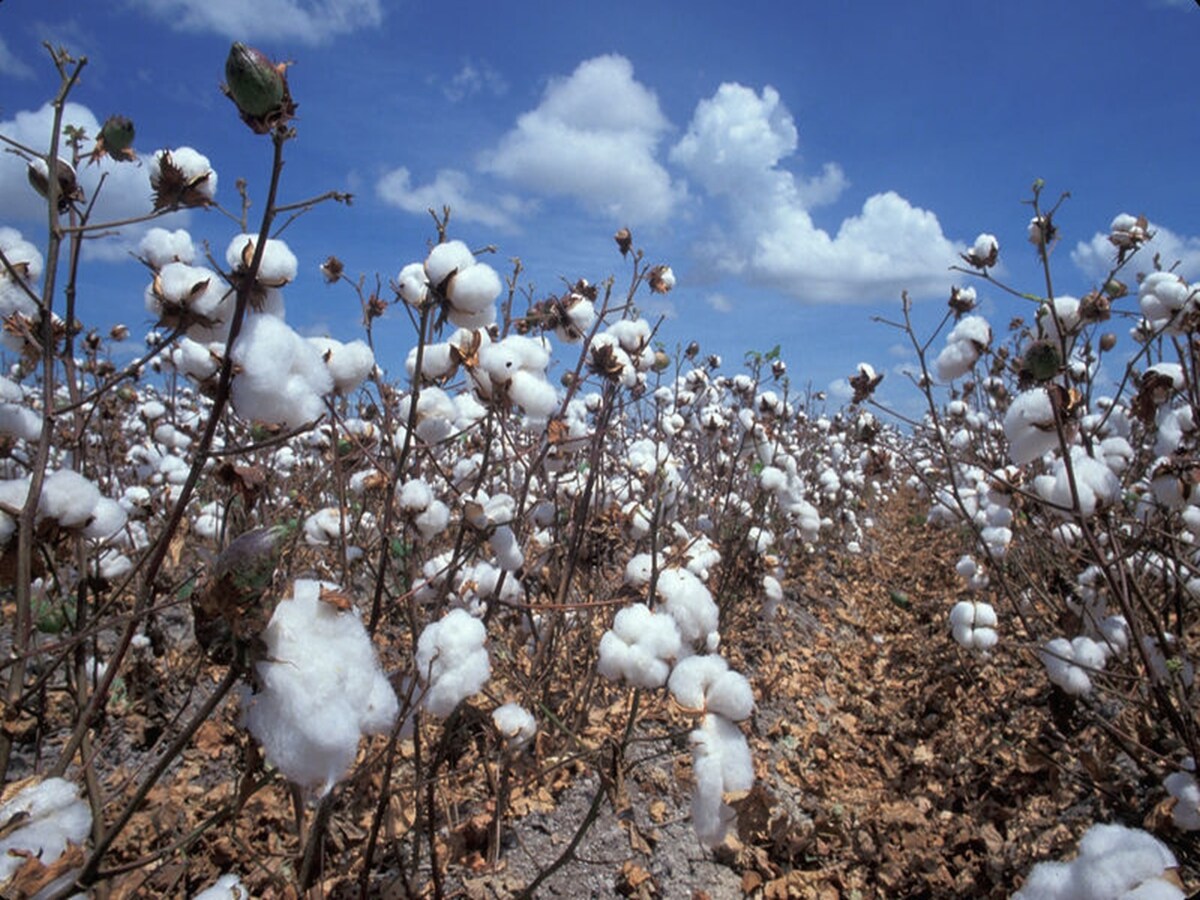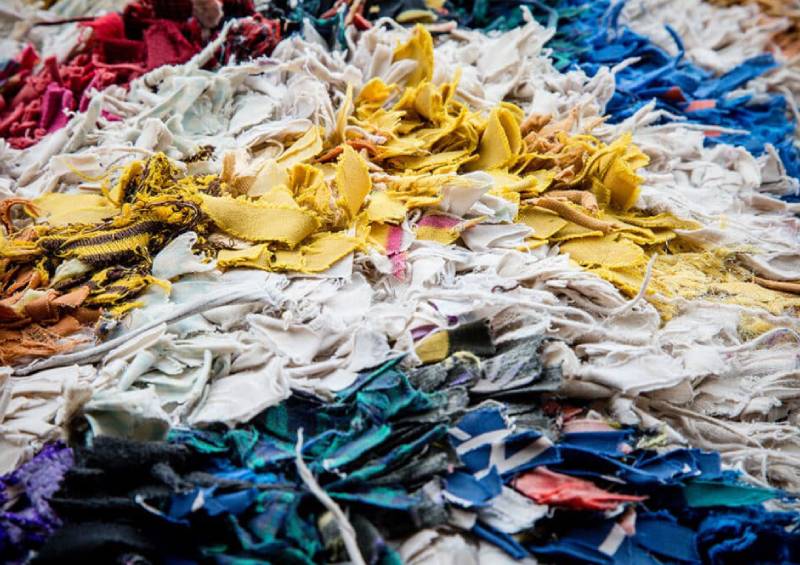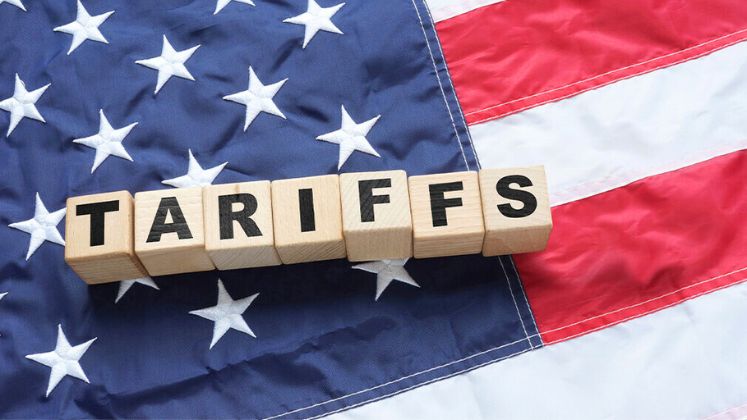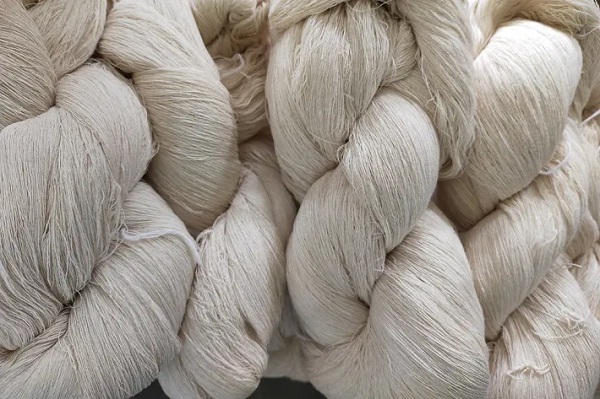
Traditionally, a major cotton exporter, India, for the first time is importing cotton yarn to guarantee uninterrupted supply to weavers and textile mills. Traders are selling imported cotton yarn at Rs 30 per kg lesser than the price of the local yarn, adding further pressure on dwindling profit margins. Atul Ganatra, President, Cotton Association of India notes, for the first time, traders and brokers have imported 4,000 tons of 40 counts of combed-carded compact yarn from Vietnam, Indonesia and Taiwan. A few weavers and mills are buying imported cotton yarn in small quantities to test their quality before ordering in bulk, he adds.
Duty removal pressurizes local spinners
A producer of 4.7 mt of spun and 3.4 mt o cotton yarn, India has world’s second largest spinning capacity after China. Around 65 per cent of the cotton yarn produced by domestic spinning mills is consumed by local weavers and textile mills and rest is exported. Removal of import duty on cotton procured from Vietnam has lessened the prices of Vietnamese cotton, leading to a reduction in capacities of local spinning units, says Jayesh Patel, Executive Committee Member, Confederation of Indian Textile Industry (CITI). This has further made it difficult for these units to sell products in the domestic market, he adds.
Big companies, with capacity to make cotton yarn, are importing cotton. For example, Welspun Group which is procuring cotton from Egypt to make yarn. The yarns are then sold at minimal rates to weaving units, notes Chintan Thaker, President.
Ahmedabad-based Chiripal Group, is importing 100 mt cotton from Nigeria. The company has taken precautionary measures like cotton hedging to prevent rising prices from impacting margins, says Ronak Chiripal, CEO. It has neither reduced nor cut down its installed capacity.
Textile mills rapidly exhaust quality stocks
Most spinning units are struggling as there is an acute shortage of quality cotton in the market, rues Gautam Dhamsania, Owner, Narmada Spinning. Mills are exhausting their stocks rapidly and would have to import cotton yarn for the next 3-4 months. Larger textile units like Welspun would also have to import raw cotton until fresh cotton stocks arrive in the local market, observes Dhamsania.



